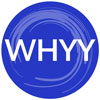How acupuncture works
Researchers seek answers to how alternative therapies lead to healing
IN THE NEWS: More than one-third of Americans use alternative and integrative medicine—including homeopathy, acupuncture and herbalism.
 As more integrative therapies become incorporated into the health system, researchers and proponents seek a greater understanding of these therapies, how they work and how treatments can be standardized when many of them are based in culture.
As more integrative therapies become incorporated into the health system, researchers and proponents seek a greater understanding of these therapies, how they work and how treatments can be standardized when many of them are based in culture.
Richard Harris, PhD, is a professor in the Department of Anesthesiology and Perioperative Care at the UCI School of Medicine. He tells WHYY that he has always had a keen interest in Eastern medicine, specifically acupuncture, and gives his unique perspective on how acupuncture really works based on his years of research and brain-imaging studies.
“There is no one simple answer; it’s more a mixture of many different effects. It seems like inserting acupuncture needles into acupuncture points causes a change in the extra cellular matrix, in the fascia between muscles. It also seems that nerve cells are activated…then those peripheral nerves send activity into the spinal cord and the brain. Acupuncture actually rewires some of the circuitry and there is also a strong anti-inflammatory response.”
Harris is an endowed chair at the UCI Health Susan Samueli Integrative Health Institute. He is a co-principal investigator on a team of researchers at Harvard and UCI who were recently awarded a five-year, $5.8 million grant by the National Institutes of Health National Center for Complementary and Integrative Health to develop a new repository and database for acupuncture research.
His recent research has included the neurobiological mechanisms of both pharmacologic and non-pharmacologic (acupuncture/acupressure) treatments for chronic pain and fatigue conditions and the role of brain neurotransmitters and their receptors in humans with chronic pain.




